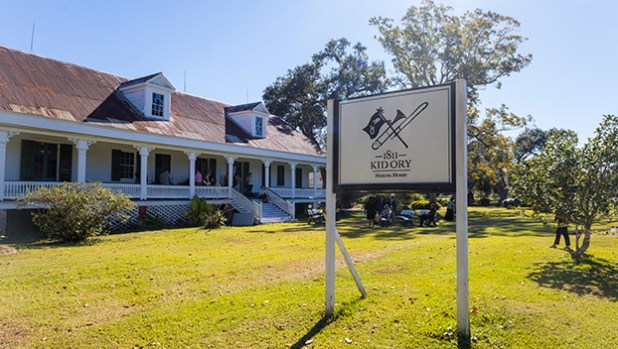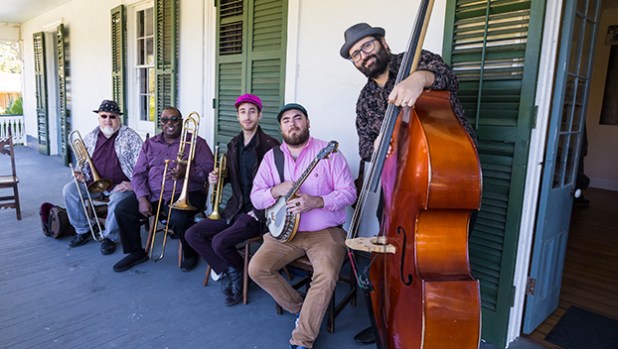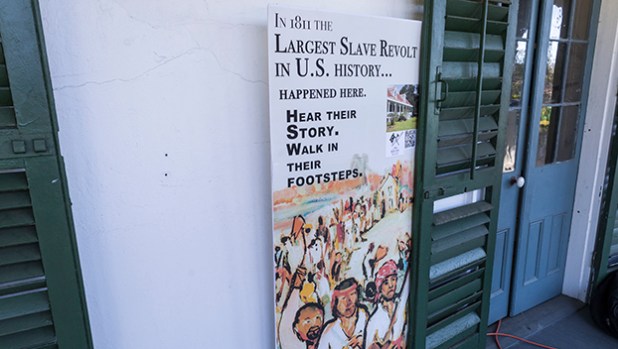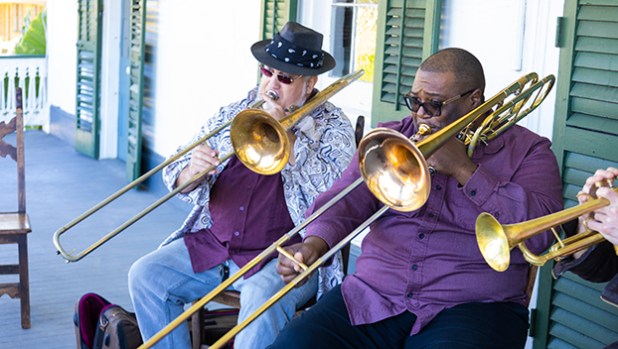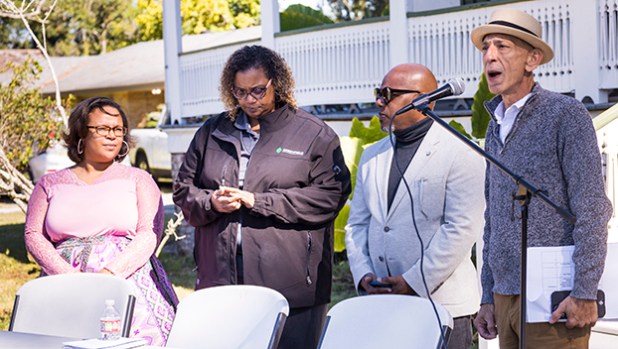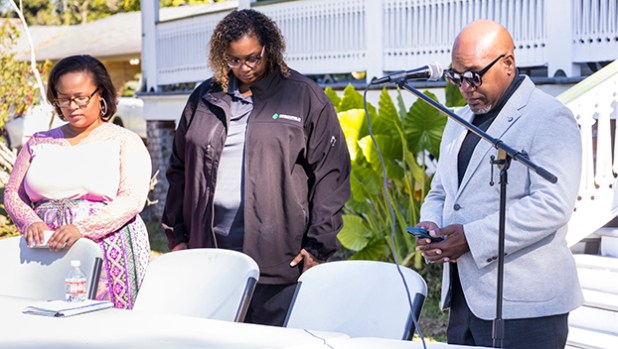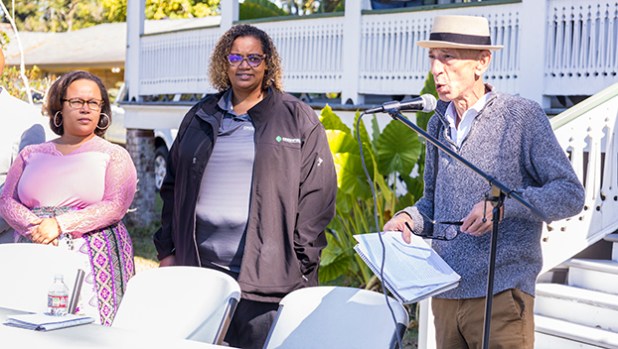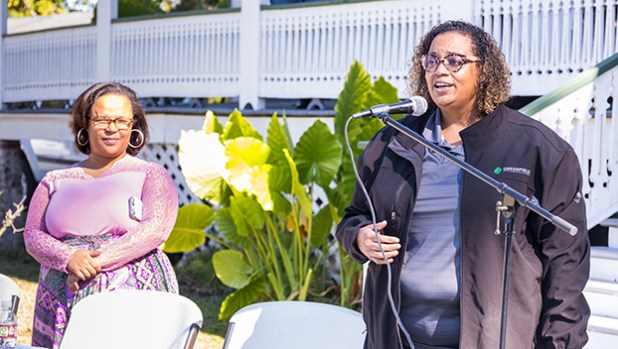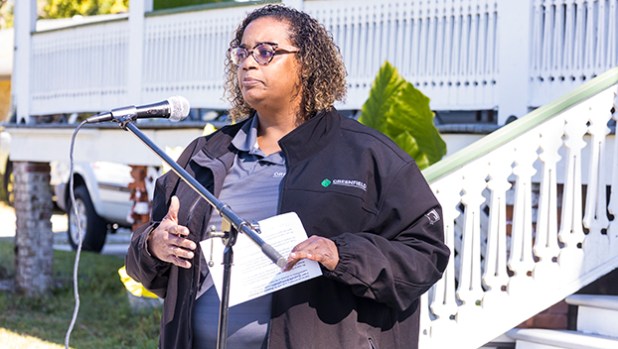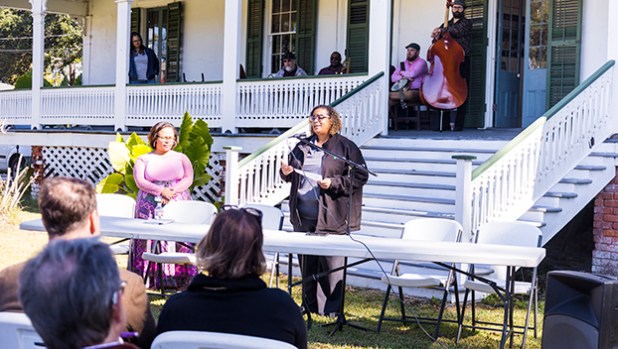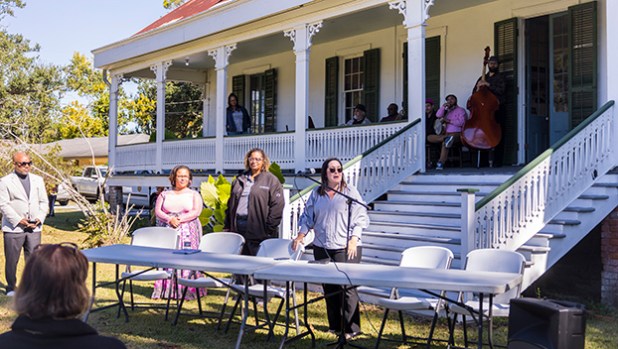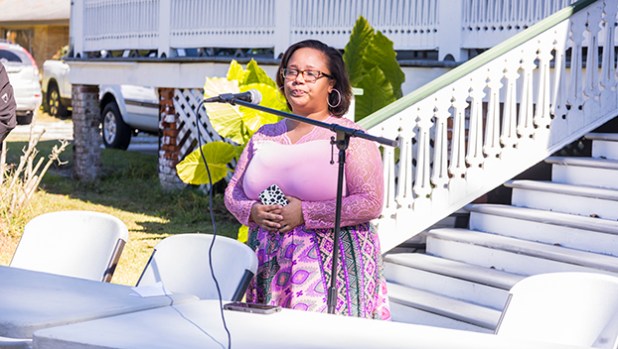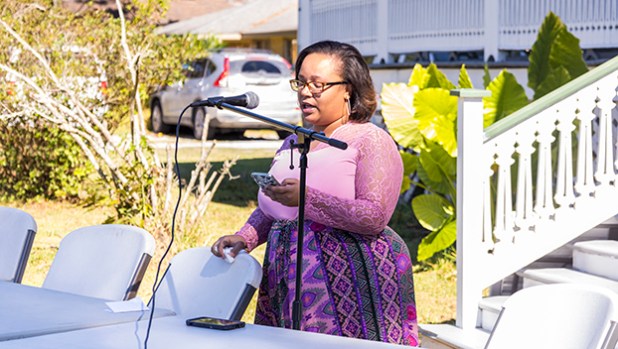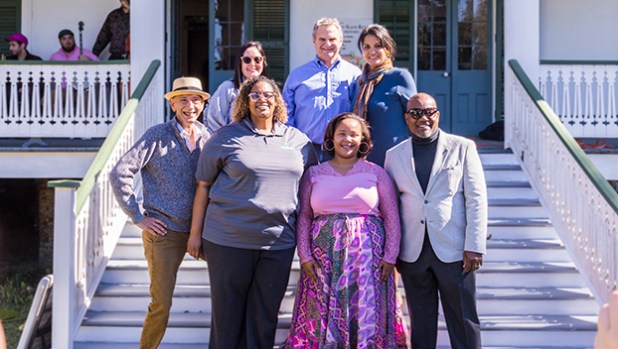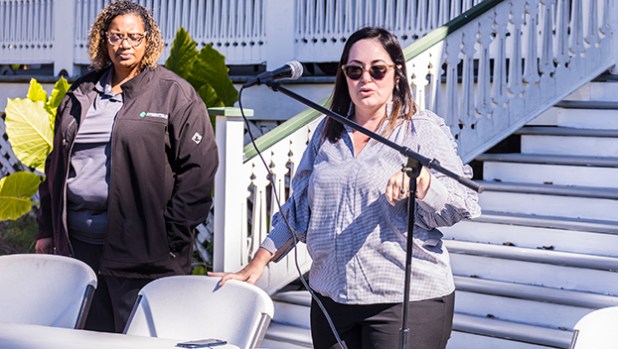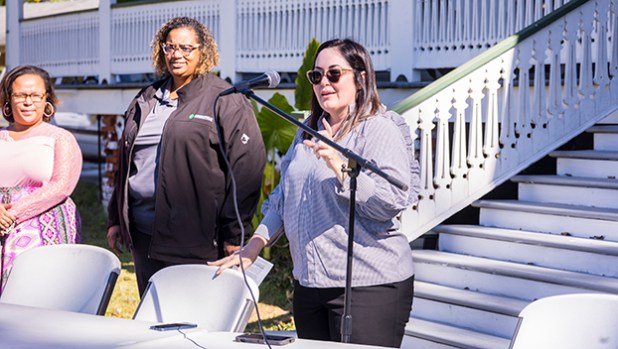1811/Kid Ory Historic House announces re-opening
Published 12:00 am Wednesday, October 26, 2022
|
Getting your Trinity Audio player ready...
|
LAPLACE — Following a three-week closure that began with an uncertain future, the 1811/Kid Ory Historic House is reopening to the public as a nonprofit.
A press conference held on the historic grounds Wednesday morning celebrated a key partnership with Greenfield Louisiana LLC that made the reopening possible. The museum is resuming its regular operating hours of 10 a.m. to 3 p.m. Thursday through Sunday beginning October 27.
Since opening to the public for the first time in early 2021, the former Andry/Woodland Plantation operated essentially rent-free thanks to the generosity of property owner Timothy Sheehan. Locals and tourists alike were introduced to the site that saw the origin of the largest slave slave rebellion in U.S. history and, later, the rise of jazz pioneer Edward “Kid” Ory. However, expenses became too much to bear as an LLC, especially through the challenges of the COVID-19 pandemic and Hurricane Ida.
When the 1811/Kid Ory Historic House closed its doors on October 1, museum founder John McCusker said he intended to spend the month of October applying for grants that would provide necessary funding for operations to resume.
The groundwork was laid last year when a non-profit was founded as an auxiliary institution to the 1811/Kid Ory Historic House with an eye on them eventually taking over the responsibilities and governance of the museum. According to McCusker, this includes administering programming and grant funding.
Key to the creation of the Bonnet Carré Historical Center were Ja’el Gordon, a scholar and early supporter of the museum; Edie Ambrose, a retired professor from Southeastern Louisiana University; and John Andry, a New Orleans attorney and direct descendent of the man who was killed inside the house on the first night of the 1811 Rebellion.
The Bonnet Carré Historical Center was able to secure a $25,000 donation from Greenfield Louisiana LLC, a company seeking permitting to construct a grain elevator on the West Bank of St. John the Baptist Parish.
Tanisha Marshall, project manager at Greenfield Louisiana, said partnering with the 1811’Kid Ory Historic House was a no-brainer. Preserving the history the museum shares is important not only to her as an African American woman, but to the company as well.
“A central part of our mission at Greenfield is honoring and preserving the extraordinary heritage of communities in St. John the Baptist Parish. We are so proud to partner with the 1811 Kid Ory Historic House to help them reopen, expand their programming and reach, and we are excited to work with them to better fulfill our own responsibilities as stewards of the land in nearby Wallace,” Marshall said.
McCusker said the $25,000 donation was more than a breath of fresh air; it was oxygen the museum needed to get up and running again.
“We appreciate the outpouring of support from the community over the last two months before the closure, and Greenfield stepping up to help us may allow us to become a long-term institution. We would not have that opportunity without them,” McCusker said. “What they’ve given us is a one-time donation, but we’re hoping, if Greenfield is successful in getting their permit and building the grain elevator, that we can be a resource for them. There’s been a lot of discussion about possible historic sites on the Greenfield footprint, and we will be working in an advisory capacity to figure out what might historically be on a specific spot if they discover something.”
As a nonprofit institution under the direction of the Bonnet Carré Historical Center, the 1811/Kid Ory Historic House will also be able to rely on donations from the public as well as grant funding to establish a long-term sustainability model. McCusker said a fundraising page is currently under construction and will soon go live.
According to McCusker, there are also plans to expand the Bonnet Carré Historical Center board in the near future.
Ja’el Gordon, who heads the new nonprofit, said the grounds of the 1811/Kid Ory Historic House have a story to tell, and the story of the ancestors must be heard. As a devoutly passionate scholars and an African American woman who works on plantations, she is the first to admit that it is not for the faint of heart. It’s a trauma she purposefully relives every day knowing the stories told speak to the resiliency of her ancestors.
“The relentless care and dedication that has been put into this museum shows in its result, a safe space for uncovering and sharing corrective narratives of those who came before, the ancestors. Advocating for the research community, history, and lives of the enslaved and emancipated Americans who inhabited the Andry/ Woodland plantation is at the foundation of the Bonnet Carré Historical Center and of the 1811/Kid Ory Historic House,” Gordon said. “Our research team continues to uncover information to provide a fuller, inclusive narrative about this tumultuous event. The news of our impending closure began to surface, a tremendous amount of encouraging commentary followed. Ultimately, though, without the help of Greenfield, this mission would have ended.”
LaPlace native Tiffany Riley shed tears during the reopening as she shared what the historic house means to her.
“I grew up here in LaPlace right up the road, so to hear that LaPlace finally had a museum – that’s big. It may seem small, but for LaPlace, every little bit counts,” Riley said. “The history and stories that we speak do not exclusively belong to this property. They belong to the enslaved Africans, to Kid Ory who took part of the story to New Orleans with his music, and presently, to my family. We all have a page in the book of our community’s history.”
Tickets to tour the historic house have reopened to the public at 1811kidoryhistorichouse.com.


